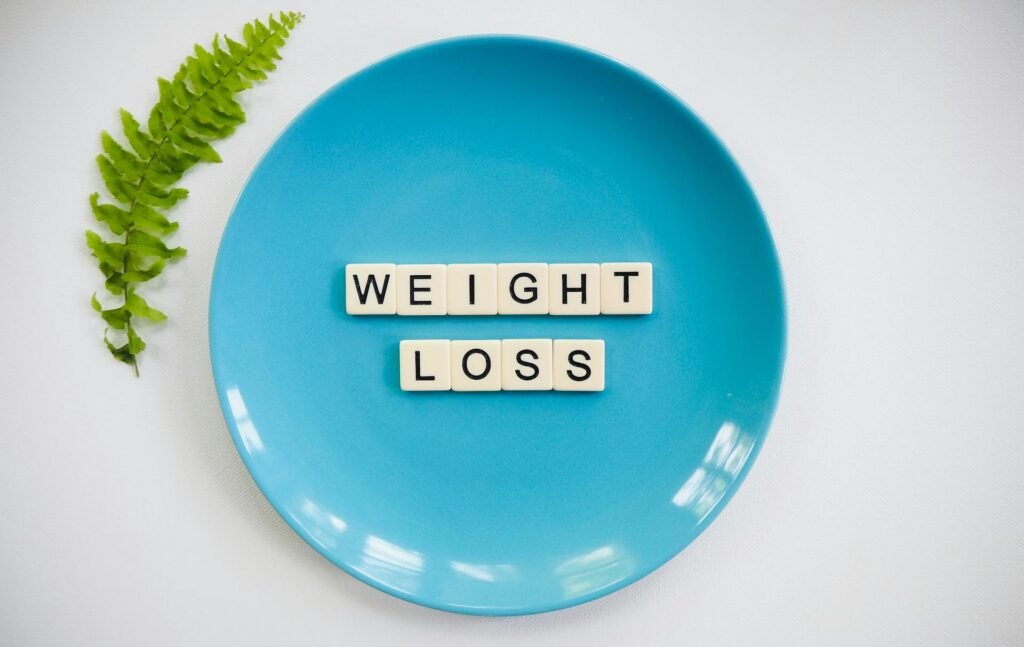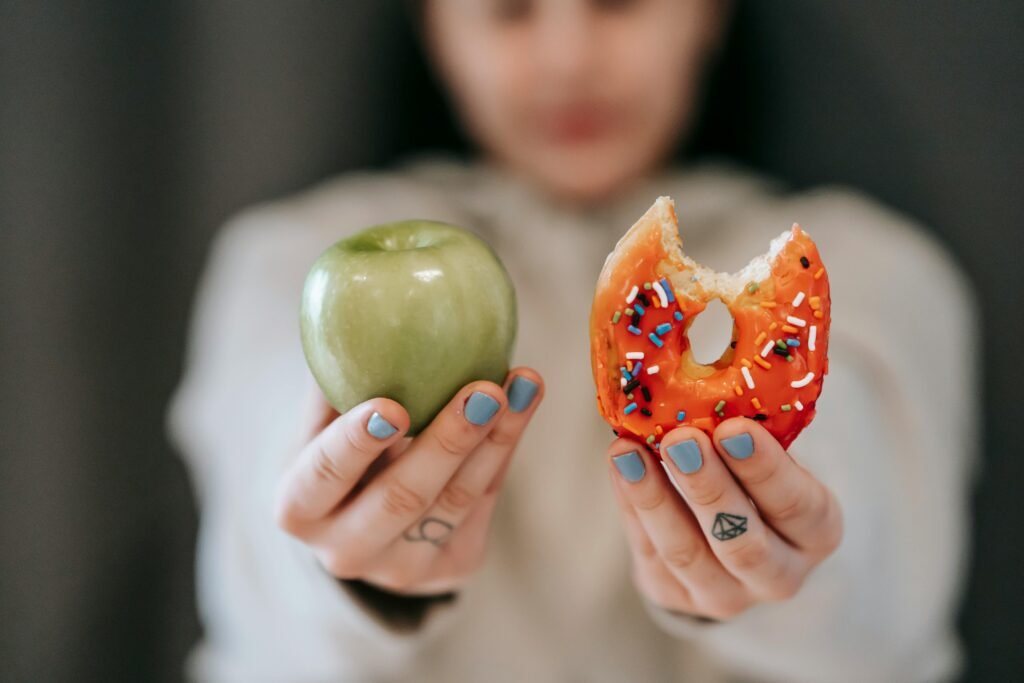
Table of Contents
Journey of Weight Loss
In the quiet moments of reflection, many people find themselves burdened by the weight of their own bodies, a constant reminder of battles fought against obesity. The struggle is not just physical but deeply emotional, as the mirror reflects not only the excessive pounds but also the hopes and dreams seemingly out of reach. Each attempt at weight loss, each diet and exercise plan, brings with it a renewed sense of determination, only to be met with frustration and despair when results are slow or nonexistent.
They are fed up with the relentless cycle of hope and disappointment, longing for the day when they can feel light on their feet, both physically and mentally. The desire to shed the weight is not just about numbers on a scale but about reclaiming their lives, their health, and their happiness. It’s a journey fraught with tears and setbacks, yet fueled by an unyielding hope that one day, they will break free from the chains of obesity and step into a healthier, more joyful existence.
Weight Loss: Explanation and Tips
Weight loss is the process of reducing body weight, typically through a combination of dietary changes, increased physical activity, and lifestyle modifications. It is often pursued for health reasons, such as reducing the risk of chronic diseases like diabetes and heart disease, improving mobility and energy levels, and enhancing overall well-being.
Here’s a comprehensive guide to understanding weight loss and effective tips to help you achieve your goals:
1. Calories In vs. Calories Out
Weight loss fundamentally comes down to the balance between the calories you consume (through food and beverages) and the calories you expend (through physical activity and metabolism). When you consume fewer calories than your body needs, it begins to burn stored fat for energy, leading to weight loss.
2. Metabolism and Energy Balance
Metabolism plays a crucial role in weight loss. It refers to the process by which your body converts food into energy. Factors such as age, gender, genetics, and body composition influence your metabolic rate. Increasing metabolism through exercise and building muscle can help burn more calories even at rest.
3. Healthy vs. Unhealthy Weight Loss
Healthy weight loss involves losing weight gradually and sustainably, typically at a rate of 1-2 pounds per week. Crash diets or extreme calorie restriction can lead to rapid weight loss but are often unsustainable and can result in nutrient deficiencies and muscle loss.
8. Healthy Tips for Effective Weight Loss

1. Set Realistic Goals
Set achievable, realistic goals for weight loss based on your current health status, lifestyle, and preferences. Aim for gradual progress rather than rapid changes.
2. Adopt a Balanced Diet
- Focus on Nutrient-Dense Foods: Choose whole, unprocessed foods rich in vitamins, minerals, and fiber. Include plenty of fruits, vegetables, lean proteins, and whole grains in your diet.
- Watch Portion Sizes: Be mindful of portion sizes to avoid overeating. Use smaller plates and avoid eating directly from large packages.
- Limit Sugary and Processed Foods: Cut back on sugary beverages, snacks, and processed foods high in added sugars and unhealthy fats.
3. Increase Physical Activity
- Cardiovascular Exercise: Engage in aerobic activities such as walking, jogging, cycling, or swimming to burn calories and improve cardiovascular health.
Strength Training: Incorporate resistance exercises to build muscle mass, boost metabolism, and improve body composition.
4. Practice Mindful Eating
- Listen to Your Body: Pay attention to hunger and fullness cues. Eat when you’re hungry and stop when you’re satisfied, rather than eating out of habit or emotions.
Slow Down: Take your time to chew your food thoroughly and savor the flavors. Eating slowly can help you feel full with less food.
5. Stay Hydrated
- Drink Plenty of Water: Stay hydrated throughout the day. Sometimes thirst can be mistaken for hunger, leading to unnecessary snacking.
6. Get Adequate Sleep
- Prioritize Sleep: Take a 7-9 hours of quality sleep each night. Poor sleep can disrupt hormones that regulate appetite and metabolism, potentially leading to weight gain.
7. Manage Stress
- Stress Reduction Techniques: Practice relaxation techniques such as deep breathing, meditation, yoga, or spending time in nature to manage stress effectively.
8. Monitor Progress and Adjust
- Track Your Habits: Keep a food and exercise journal to monitor your progress and identify areas for improvement.
- Be Flexible: Adjust your approach as needed based on your results and feedback from your body. Weight loss is a journey that may require experimentation and adaptation.
Modern Lifestyle and Obesity!!!
Whenever we discuss obesity often requires a multifaceted approach that includes promoting healthy eating habits, increasing physical activity, addressing psychological factors, improving environmental conditions, and addressing medical conditions when necessary. Recognizing the complex interplay of these factors is crucial for developing effective strategies for obesity prevention and management.
What’s Really Causing the Weight Gain?

- 1. Poor Diet: Consuming high-calorie, low-nutrient foods such as fast food, sugary beverages, and processed snacks can contribute to weight gain and obesity. These foods are often high in fats, sugars, and refined carbohydrates, which can lead to overeating and weight gain.
- 2. Lack of Physical Activity: Sedentary lifestyles, characterized by prolonged periods of sitting or physical inactivity, reduce calorie expenditure and contribute to weight gain. Insufficient exercise and lack of regular physical activity can lead to energy imbalance and obesity over time.
- 3. Genetics and Family History: Genetic factors can influence individual susceptibility to obesity. People with a family history of obesity may be more likely to gain weight due to genetic predispositions that affect metabolism, fat storage, and appetite regulation.
- 4. Environmental Factors: Environmental factors, such as access to unhealthy food options (e.g., fast food restaurants, vending machines) and built environments that discourage physical activity (e.g., lack of sidewalks, unsafe neighborhoods), can contribute to obesity rates in communities.
- 5. Psychological Factors: Emotional factors like stress, depression, or anxiety can lead to overeating or unhealthy eating habits as a coping mechanism. These psychological factors can contribute to weight gain and difficulty in managing obesity.
- 6. Medical Conditions: Certain medical conditions and medications may contribute to weight gain and obesity. Conditions such as hypothyroidism, polycystic ovary syndrome (PCOS), and hormonal imbalances can affect metabolism and lead to weight gain.
- 7. Lifestyle Habits: Factors such as irregular sleep patterns, excessive alcohol consumption, smoking, and inadequate stress management can contribute to weight gain and obesity over time.
- 8. Social and Cultural Factors: Cultural norms, socioeconomic status, and social influences can affect dietary choices, physical activity levels, and body weight. Societal norms and cultural practices may promote behaviors that contribute to obesity.
- 9. Sleep Quality: Poor sleep quality or inadequate sleep duration can disrupt hormones that regulate hunger and appetite, leading to increased food intake and weight gain over time.
- 10. Advertising and Marketing: Promotion of unhealthy foods and beverages through advertising and marketing can influence consumer choices and contribute to over consumption of calorie-dense, nutrient-poor foods.
Lose Weight Naturally: Proven Tips for Healthy Weight Loss Without Diets
Losing weight doesn’t always have to mean strict diets and constant calorie counting. It’s possible to achieve and maintain a healthy weight through simple, sustainable lifestyle changes.

Here are some effective tips for healthy weight loss without resorting to dieting.
1. Focus on Nutrient-Dense Foods
- Choose Whole Foods: Always choose whole, unprocessed foods such as fruits, vegetables, whole grains, lean proteins, and healthy fats. These foods are packed with essential nutrients that support overall health and help keep you feeling full longer.
- Eat More Fiber: Foods high in fiber, like vegetables, fruits, beans, and whole grains, can help you feel full for longer periods. This reduces the likelihood of overeating and helps in maintaining a healthy digestive system.
2. Mindful Eating
- Pay Attention to Hunger Cues: Listen to your body’s hunger and fullness signals. Eat when you’re hungry and stop when you’re satisfied. Avoid eating out of boredom, stress, or emotional triggers.
- Savor Your Food: Take time to enjoy each bite. Eating slowly and savoring your food can help you recognize when you’re full and prevent overeating.
3. Stay Hydrated
- Drink Water Regularly: Drinking plenty of water throughout the day can help control hunger and prevent overeating. Sometimes, thirst is mistaken for hunger, leading to unnecessary snacking.
Limit Sugary Beverages: Cut back on sugary drinks like sodas and juices. These beverages add extra calories without providing any nutritional benefits.
4. Regular Physical Activity
- Incorporate Exercise into Your Routine: Aim for at least 150 minutes of moderate-intensity aerobic activity or 75 minutes of vigorous-intensity activity each week. This can include activities like walking, running, cycling, or swimming.
- Strength Training: Include strength training exercises at least two days a week. Building muscle can help boost your metabolism and promote weight loss.
5. Get Adequate Sleep
- Prioritize Sleep: Aim for 7-9 hours of quality sleep each night. Poor sleep can disrupt hormones that regulate hunger and appetite, leading to weight gain.
- Establish a Sleep Routine: Go to bed and wake up at the same time each day, even on weekends. Create a relaxing bedtime routine to improve the quality of your sleep.
6. Manage Stress
- Practice Stress-Relief Techniques: Chronic stress can lead to weight gain by increasing cravings for unhealthy foods. Practice stress-relief techniques such as meditation, yoga, deep breathing exercises, or spending time in nature.
- Seek Support: If you’re struggling to manage stress on your own, consider talking to a professional therapist or counselor.
7. Healthy Snacking
- Choose Healthy Snacks: Choose snacks that are high in protein and fiber, such as nuts, seeds, yogurt, or fruit. These can help keep you full between meals and prevent unhealthy snacking.
Portion Control: Pay attention to portion sizes. Instead of eating directly from the package, portion out a serving size to avoid overeating.
8. Stay Consistent
- Make Sustainable Changes: Focus on making small, sustainable changes rather than drastic ones. Consistency is key to long-term success in weight management.
- Track Your Progress: Keep a journal or use an app to track your eating habits, physical activity, and progress. This can help you stay accountable and motivated.
Weight loss without dieting is achievable by adopting a balanced, healthy lifestyle. Focus on nutrient-dense foods, practice mindful eating, stay hydrated, incorporate regular physical activity, prioritize sleep, manage stress, choose healthy snacks, and stay consistent with your efforts. By making these small but significant changes, you can achieve and maintain a healthy weight without the need for restrictive diets.
Your Guide to Healthy Eating: Detailed Diet Charts for Vegans and Non-Vegans
VEGAN DIET CHART
- Breakfast:
- Smoothie with spinach, banana, almond milk, chia seeds, and a handful of berries.
- Whole grain toast with avocado.
- Mid-Morning Snack:
- Apple slices with almond butter.
- Lunch:
- Quinoa salad with chickpeas, cucumber, tomatoes, bell peppers, and tahini dressing.
- Afternoon Snack:
- Carrot sticks with hummus.
- Dinner:
- Lentil soup with mixed vegetables.
- Steamed broccoli and a side of brown rice.
Breakfast:
Oatmeal made with almond milk, topped with walnuts, raisins, and a drizzle of maple syrup.
Mid-Morning Snack:
Fresh fruit salad (orange, kiwi, pineapple).
Lunch:
Black bean and corn tacos with avocado, salsa, and lettuce.
Afternoon Snack:
A handful of mixed nuts.
Dinner:
Stir-fried tofu with mixed vegetables (broccoli, carrots, bell peppers) over quinoa.
Breakfast:
Chia pudding made with coconut milk, topped with berries and a sprinkle of coconut flakes.
Mid-Morning Snack:
Celery sticks with peanut butter.
Lunch:
Vegan sushi rolls with avocado, cucumber, and carrots.
Afternoon Snack:
Edamame.
Dinner:
Spaghetti with marinara sauce and a side salad with mixed greens, cherry tomatoes, and balsamic vinaigrette.
- Breakfast:
- Smoothie bowl with blended spinach, banana, and almond milk, topped with granola and fresh fruit.
- Mid-Morning Snack:
- Dried apricots and a handful of cashews.
- Lunch:
- Falafel wrap with hummus, lettuce, tomato, and cucumber.
- Afternoon Snack:
- Vegan yogurt with mixed berries.
- Dinner:
- Stuffed bell peppers with quinoa, black beans, corn, and diced tomatoes.
Non-Vegan Diet Chart
Breakfast:
Greek yogurt with honey, granola, and fresh berries.
Whole grain toast with scrambled eggs.
Mid-Morning Snack:
Apple slices with peanut butter.
Lunch:
Grilled chicken salad with mixed greens, cherry tomatoes, cucumber, and balsamic vinaigrette.
Afternoon Snack:
Cheese sticks and whole grain crackers.
Dinner:
Baked salmon with quinoa and steamed asparagus.
- Breakfast:
- Smoothie with spinach, banana, milk, and a scoop of protein powder.
- Mid-Morning Snack:
- Hard-boiled eggs.
- Lunch:
- Turkey and avocado sandwich on whole grain bread with a side of baby carrots.
- Afternoon Snack:
- Greek yogurt with a handful of nuts.
- Dinner:
- Beef stir-fry with mixed vegetables (broccoli, bell peppers, carrots) over brown rice.
- Breakfast:
- Oatmeal made with milk, topped with sliced banana, chia seeds, and a drizzle of honey.
- Mid-Morning Snack:
- Fresh fruit salad (orange, kiwi, pineapple).
- Lunch:
- Chicken Caesar salad with romaine lettuce, grilled chicken, croutons, and Caesar dressing.
- Afternoon Snack:
- Cottage cheese with sliced peaches.
- Dinner:
- Grilled shrimp with a side of roasted sweet potatoes and a mixed vegetable medley.
- Breakfast:
- Smoothie bowl with blended spinach, banana, and milk, topped with granola and fresh fruit.
- Mid-Morning Snack:
- Celery sticks with hummus.
- Lunch:
- Tuna salad with mixed greens, cherry tomatoes, and a lemon vinaigrette.
- Afternoon Snack:
- A handful of mixed nuts.
- Dinner:
- Chicken and vegetable skewers with a side of quinoa and steamed broccoli.
Both vegan and non-vegan diets can be balanced and nutritious with careful planning. Incorporating a variety of fruits, vegetables, whole grains, and protein sources is key to ensuring you get all the essential nutrients your body needs. Tailor these diet charts to your individual preferences and nutritional needs for the best results.
FAQ About Weight Loss and Diet
1. What is the best diet for weight loss?
There is no one-size-fits-all diet for weight loss. The best diet is one that you can stick to long-term, meets your nutritional needs, and fits your lifestyle. Popular options include the Mediterranean diet, low-carb diets, plant-based diets, and intermittent fasting. Consult a healthcare professional to find the best approach for you.
2. How quickly can I expect to lose weight?
Healthy weight loss typically occurs at a rate of 1-2 pounds per week. Rapid weight loss can lead to muscle loss, nutritional deficiencies, and other health issues. Sustainable weight loss involves gradual changes to diet and lifestyle.
3. Do I need to count calories to lose weight?
While counting calories can help some people understand their energy intake and expenditure, it’s not necessary for everyone. Focus on eating nutrient-dense foods, controlling portion sizes, and being mindful of hunger and fullness cues.
4. Can I lose weight without exercising?
Yes, weight loss can be achieved through dietary changes alone, but incorporating physical activity can enhance weight loss, improve muscle mass, and boost overall health. Aim for a combination of aerobic exercise and strength training for best results.
5. What should I eat to lose weight?
Eat a balanced diet rich in whole foods such as fruits, vegetables, lean proteins, whole grains, and healthy fats. Limit processed foods, sugary beverages, and high-calorie snacks. Focus on portion control and nutrient density.
6. Can I eat carbs and still lose weight?
Yes, you can eat carbs and still lose weight. Choose complex carbohydrates like whole grains, fruits, and vegetables over refined carbs and sugary foods. Balance your carb intake with protein and healthy fats to maintain stable blood sugar levels and satiety.
7. Is intermittent fasting effective for weight loss?
Intermittent fasting can be effective for weight loss for some people by reducing overall calorie intake and improving metabolic health. However, it may not be suitable for everyone. Consult a healthcare professional before starting any fasting regimen.
8. How can I stay motivated to lose weight?
Set realistic goals, track your progress, find a support system, and celebrate small achievements. Focus on the health benefits of weight loss, rather than just the numbers on the scale. Make sustainable changes that you can maintain long-term.
9. Can stress affect my weight?
Yes, chronic stress can lead to weight gain by increasing cortisol levels, which can promote fat storage, particularly around the abdomen. Stress can also lead to emotional eating and poor food choices. Practice stress management techniques like meditation, exercise, and relaxation.
10. Is it safe to lose weight quickly?
Rapid weight loss can be harmful and is usually not sustainable. It can lead to muscle loss, nutritional deficiencies, and other health problems. Aim for gradual, steady weight loss through a balanced diet and regular exercise.
Dietary Myths and Facts
- Do I need to avoid all fats to lose weight?
- No, not all fats are bad. Healthy fats, such as those found in avocados, nuts, seeds, and olive oil, are essential for health and can aid weight loss by keeping you full and satisfied. Avoid trans fats and limit saturated fats.
- Is skipping meals a good way to lose weight?
- Skipping meals can lead to overeating later and disrupt metabolism. It’s better to eat regular, balanced meals to maintain energy levels and avoid extreme hunger that can lead to poor food choices.
- Can detox diets help with weight loss?
- Detox diets are not necessary and often lack scientific evidence. They can lead to nutrient deficiencies and are typically not sustainable. Focus on a balanced diet with plenty of water to support natural detoxification processes.
- Is drinking water important for weight loss?
- Yes, staying hydrated is important for weight loss. Drinking water can help control hunger, boost metabolism, and support overall health. Aim for at least 8 cups (2 liters) of water per day, more if you’re active or in a hot climate.
- Do certain foods have negative calories?
- The concept of negative calorie foods (foods that burn more calories during digestion than they provide) is largely a myth. While some foods are very low in calories and can be part of a weight loss diet (like celery and cucumbers), they don’t have negative calories.

